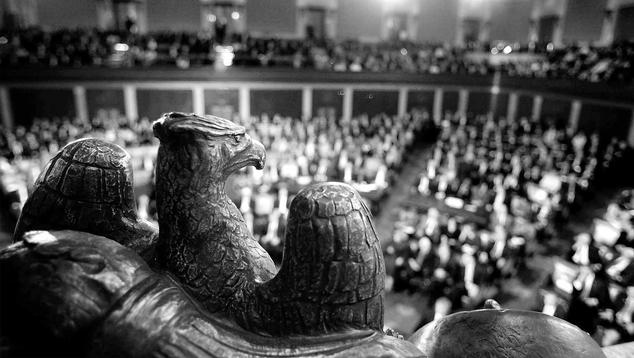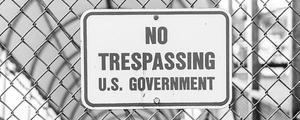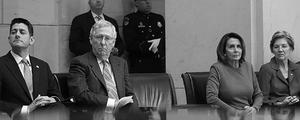Story Highlights
- 50% say government is doing too much, down from recent years
- Americans divided on whether government should promote traditional values
- Republicans and Democrats hold sharply differing views on both measures
WASHINGTON, D.C. -- Americans for decades have shown a broad tendency to say the government is doing too much that should be left to individuals and businesses, as opposed to the belief that the government should do more to help solve the nation's problems. The only times over the past quarter-century when Americans didn't side with the view that government should do less were in the early 1990s after the 1990-1991 recession and in October 2001 just after 9/11. Currently, 50% of Americans say the government is doing too much and 44% say the government should do more, with 7% undecided.
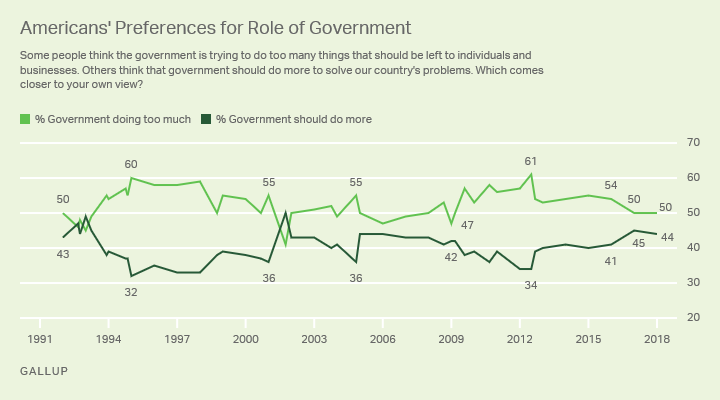
The size of the gap in favor of a less active government role has varied over time -- primarily reflecting changes in the party of the president and the resulting changes in government policy, along with real-world events.
Americans were most likely to say the government is doing too much during the Bill Clinton and Barack Obama administrations, with highs of 60% in 1995 and 61% in 2012. Americans were least likely to hold this belief at the tail end of the George H.W. Bush administration in 1992 and early 1993; in 2001; in 2006, near the end of the George W. Bush administration; and in early 2009.
With Republican Donald Trump in the White House, the gap in the percentage of Americans saying the government is doing too much and should do more shrank to five percentage points last year. This year's six-point gap is essentially the same.
Republicans Want Government to Do Less; Democrats Want It to Do More
There is a huge difference between Republicans and Democrats in views on what the government should be doing, underscoring the well-established historical and philosophical differences between the two parties on this issue.
The trends since 2001 -- when Gallup began asking this question each September in its annual Governance poll -- show that over 60% of Republicans and Republican-leaning independents in each survey have chosen the "government doing too much" option, with at least 80% choosing that option during Obama's first term. The current 69% of Republicans who say the government is doing too much is slightly below the Republican average. At most, 30% of Republicans said they wanted the government to do more in these measurements.
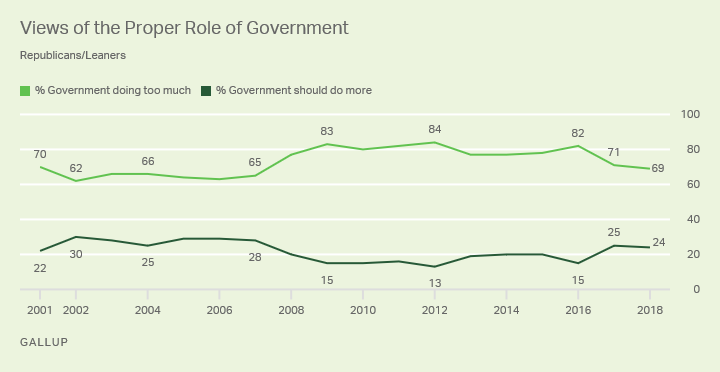
By contrast, Democrats and Democratic leaners have consistently chosen the "government should do more" option, with a slightly increased percentage beginning in 2008 that reached a high point of 70% in 2016. The current 62% who say government should do more, and the 35% who say government should do less, are both about average for Democrats' views over the past 17 years.
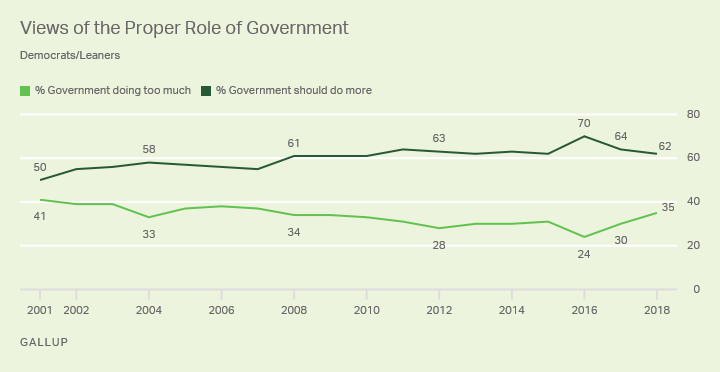
Both partisan groups have moderated their views over the first two years of the Trump administration versus their opinions at the end of the Obama administration:
-
Republicans have become slightly less likely to say the government is doing too much, apparently because they have become at least a little more positive about what the government is doing (under a Republican president).
-
Democrats have become less likely to say government should do more, most likely for the opposite reason -- they are apparently a little less OK with the government doing more when that government is under the control of Trump and the Republicans.
Despite these modest changes, the underlying partisan differences in views of government's role remain stark. Republicans want less government involvement; Democrats want more.
Americans Divided on Government Role in Promoting Traditional Values
Gallup each year pairs the question about government doing too much with a separate question asking Americans specifically if the government should promote traditional values in society. ("Traditional values" is not further defined in the question wording.)
From 1993 through 2004, the majority of Americans consistently said the government should promote traditional values. That attitude began to change in the middle of the 2000s, and since 2008, views on the issue have fluctuated. In some years over the past decade, a small majority or a slight plurality of Americans have said the government should promote traditional values. In other years, a slight majority have said the government should not favor any set of values. This year, about as many Americans say the government should promote traditional values (49%) as say it should not favor any values (47%).
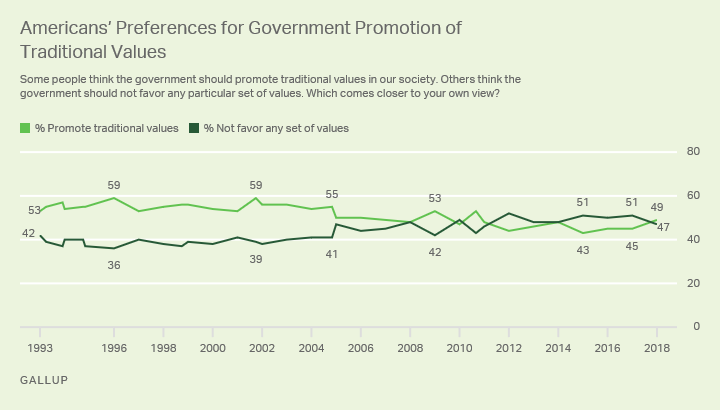
Republicans and Democrats have nearly mirror-opposite views on this topic. Almost two in three Republicans and Republican leaners say government should promote traditional values, while nearly six in 10 Democrats and leaners say government should not. Republicans' views that government should promote traditional values dipped from 2011-2016, but have risen modestly over the past two years. Democrats' views have been more variable, with the current 37% favoring the idea right at the average since 2001.
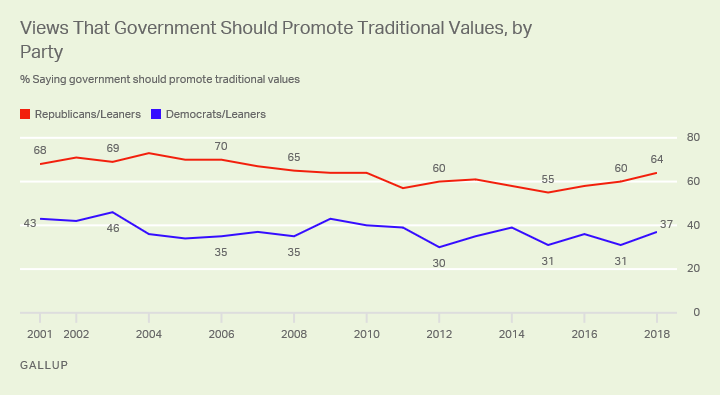
Bottom Line
Americans view government as the most important problem facing the nation at this point in history, and they clearly want their elected representatives to attempt to compromise in order to get things done.
But the public's divided views on the fundamental question of how active government should be underscore how difficult it is for elected representatives to achieve agreement in Washington, particularly in light of how differently Republicans and Democrats view the issue. These concerns are not new, of course. The Founding Fathers more than 225 years ago wrestled with exactly the same problems. Perhaps the founders would not be surprised to learn that even today, there is little agreement among the people on the philosophical question of what the federal government should or should not be doing.
View complete question responses and trends.
Learn more about how the Gallup Poll Social Series works.
